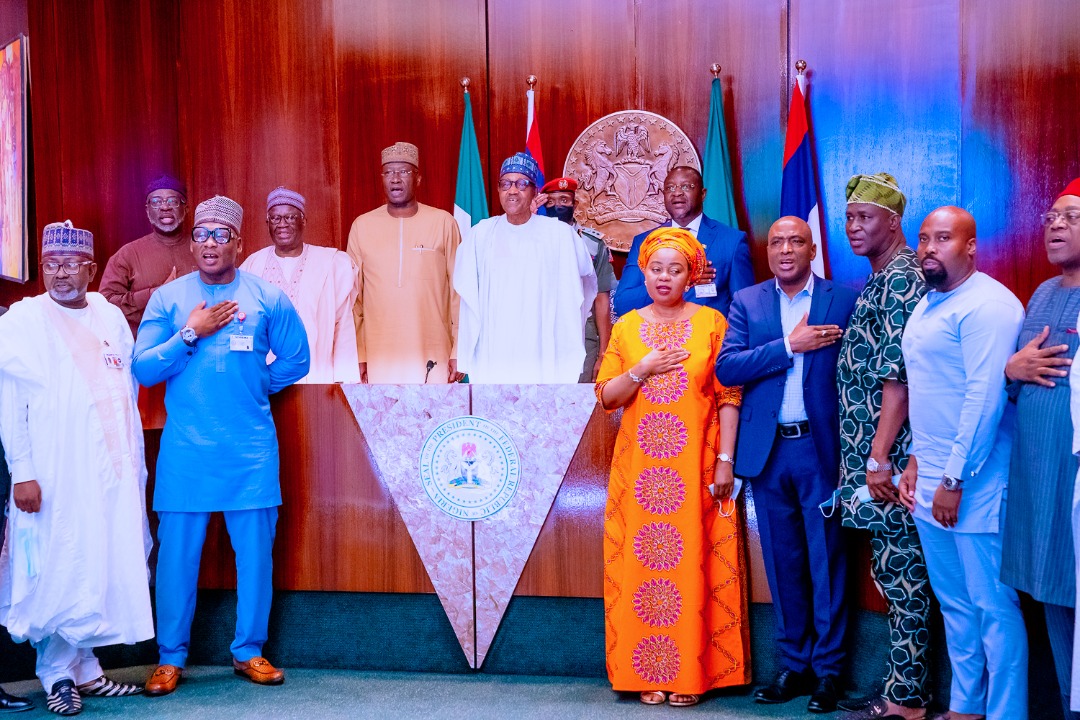
The Dual Stints of Muhammadu Buhari and the Evolution of Nigerian Sports
Muhammadu Buhari, Nigeria’s former president, had a unique journey in leadership that spanned two distinct eras. His first stint as head of state was as a military leader from December 31, 1983, to August 1985. Decades later, he returned to power through democratic elections, serving as Nigeria’s president from May 29, 2015, to May 29, 2023. These two periods, separated by nearly four decades, witnessed significant developments and challenges in Nigerian sports.
Sports Under Buhari’s Military Rule (1983–1985)
During Buhari’s brief military regime, sports were not a top priority, but several notable events shaped the trajectory of Nigerian sports.
Highs
- AFCON 1984 Silver Medal: The Green Eagles, led by Coach Adegboye Onigbinde, reached the final of the Africa Cup of Nations in Côte d'Ivoire, losing 3-1 to Cameroon. This performance highlighted Nigeria's footballing strength on the continent.
- FIFA U16 Victory in China: Coached by Sabastine Broderick-Imasuen, the Golden Eaglets won the inaugural FIFA U16 World Championship in China, defeating Germany 2-0 in the final.
- Flying Eagles' Moscow '85 Bronze Medal: The Flying Eagles won bronze at the FIFA Youth Championship in Moscow, with players trained during Buhari’s reign setting the stage for future youth football dominance.
- Rising Athletics Stars: Athletes like Chidi Imoh and Sunday Uti emerged, contributing to Nigeria's growing presence in global athletics.
- Domestic Football Boom: Clubs such as Leventis United and New Nigerian Bank FC thrived locally, while the National Sports Festival remained a talent incubator despite economic constraints.
Lows
- 1984 Olympic Boycott: Nigeria joined a boycott of the Los Angeles Olympics, depriving many athletes of opportunities for international recognition.
- Underfunding and Neglect: With austerity measures in place, sports infrastructure suffered, and the government prioritized anti-corruption efforts over sports development.
Sports Under Buhari’s Democratic Leadership (2015–2023)
When Buhari returned as a democratically elected president, the sports sector was already in decline. His administration’s approach yielded mixed results, with both achievements and setbacks.
Highs
- Women’s Football Dominance - Super Falcons: The Super Falcons won back-to-back WAFCON titles in 2016 and 2018, with stars like Asisat Oshoala and Desire Oparanozie gaining global recognition.
- Tokyo 2020 Olympics Success: Nigeria secured two medals—Ese Brume’s bronze in long jump and Blessing Oborodudu’s historic silver in wrestling.
- Tobi Amusan’s World Record (2022): Tobi Amusan set a world record in the 100m hurdles, becoming Nigeria’s first world champion in athletics.
- D'Tigress’ African Basketball Dominance: The women’s basketball team won AfroBasket titles in 2017, 2019, 2021, and 2023, matching Senegal’s record.
- Commonwealth Games 2022 Performance: Nigeria achieved its best-ever result at the games, finishing 7th with 35 medals.
- Paralympic Success: Nigerian para-athletes continued to excel, winning 10 medals at the Tokyo 2020 Paralympics.
- National Sports Festival Revival: The Edo 2020 and Delta 2022 editions marked a resurgence of the festival as a talent scouting platform.
- Wrestling Revolution: Blessing Oborodudu and Odunayo Adekuoroye brought Nigerian wrestling to the global stage.
- Flamingos’ Historic Bronze (2022): Nigeria’s U-17 women’s team won bronze at the FIFA U17 Women’s World Cup, marking a historic achievement.
- WAFU Triumphs: The Golden Eaglets and Flying Eagles won WAFU B tournaments, qualifying for the 2023 AFCON.
- Honour for 1985 Golden Eaglets: Buhari fulfilled a promise by honouring the 1985 U-16 team, providing national awards and financial support.
- Infrastructure Rehabilitation: Key stadiums were revived through private sector partnerships.
- National Sports Industry Policy (2022): A blueprint was launched to transition sports into a commercially viable sector.
- NSC Act 2023: Buhari signed the National Sports Commission Act, marking his final contribution to sports before leaving office.
Lows
- Controversial Appointments: Buhari faced criticism for appointing Solomon Dalung as minister of youth and sports.
- Super Eagles’ Qatar 2022 Mishap: The team failed to qualify for the FIFA World Cup after a draw against Ghana, leading to public outrage.
- AFCON 2022 Disappointment: The Super Eagles crashed out early, sparking criticism.
- 2023 CHAN Eagles’ Failure: The domestic team also failed to qualify for the African Nations Championship.
- Super Falcons’ WAFCON Struggles: The team finished fourth at the 2022 WAFCON, a rare medal-less outing.
- D’Tigers’ Decline: While D’Tigress thrived, the men’s team struggled with inconsistency and failed to qualify for the 2023 FIBA World Cup.
- Persistent Bonus Issues: Athletes across various sports faced delays or nonpayment of allowances, leading to public protests.
- Sports Federations’ Crisis: Federations like the NFF and NBBF faced internal disputes, mismanagement, and poor planning, affecting national team performances.
- D’Tigress’ FIBA World Cup Exit: The team was excluded from the 2022 FIBA Women’s Basketball World Cup due to a government withdrawal following a crisis in the NBBF.
Conclusion
Buhari’s impact on Nigerian sports can be seen as a mix of unrealized potential and remarkable achievements. While his tenure coincided with major successes, especially in women’s sports, parasports, and individual athletic feats, the sector continued to face challenges such as underfunding, administrative disorder, and lack of long-term planning. Nigerian sports under Buhari mirrored the nation’s broader struggles—full of talent, weakened by structural issues, yet driven by determination.
